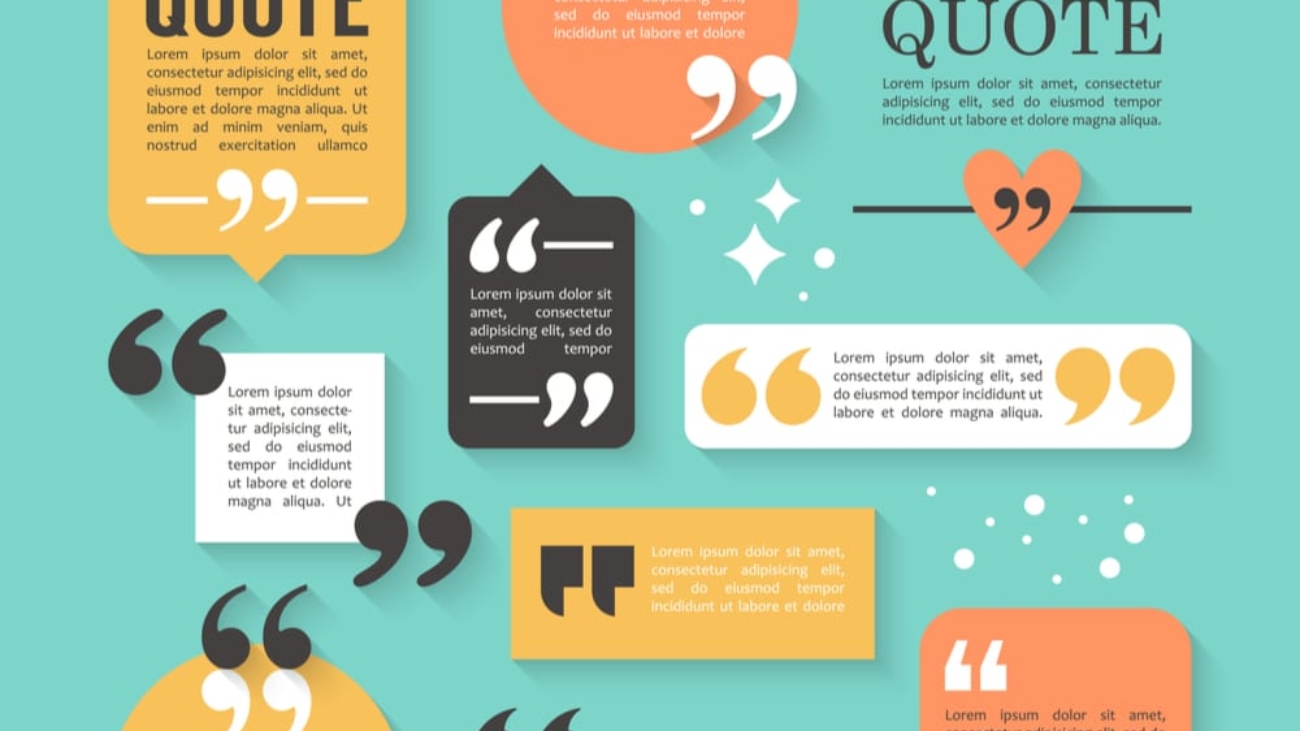Having compelling content in your blog or social media posts can help boost your credibility as an authority on any subject, especially when you use quotes from sources to validate your statements.
There’s no doubt that using quotes from renowned or credible people, whether it be sourced from books or from other people, is a great way to improve your content and can also help build professional relationships, as well.
Why use quotes?
Quotes are powerful since they can add credibility to your content and helps make for stronger arguments. It also presents a third-party opinion that supports your argument or topic.
It also helps make content more informative and interesting for the audience, especially when it provides insights and ideas from those being quoted.
For the writer, they get to learn more as they get to seek ideas from others. It also establishes connections with other people, especially when you reach out to those you are getting the quotes from.
But there’s a risk to it, particularly when it is abused and could damage the reputation of the blogger, especially if quotes are used improperly. You’d hate to be sued in court for incorrectly using someone’s statement or claim. So how can this be avoided?
Does it have to be technical?
There’s good news, you do not have to be a lawyer to fully understand how to properly use quotes. Here’s how to make use of quotes properly;
Don’t forget the quotation marks
Do not forget to always put quotation marks on statements that you coined from others, which indicates that those words are not yours and are attributed to someone else.
Always provide the name of the source
Always attribute the quote to the person you sourced it from. The name should be placed right after the quote or a phrase that gives reference to the quote owner.
Use links to the original content
If the quote is from a published online source, provide a link back to the original content using a hyperlink. A similar process can be done if the quote is from a published video clip such as in YouTube, podcast, or Buzzfeed.
If you can’t find the quote in verbatim or if it came from a video or audio recording, you can provide a link from your source’s social media or homepage to provide the attribution.
The key reasons for linking original content to the source is that it serves the readers who wish to go look at the original source for more details or if they want to explore further the podcast, streaming, or video content in its entirety.
It also serves the person being quoted as it could also help drive traffic and audience interest in them. This could help them boost their profiles and credibility online, same as what you would expect for yourself.
What else?
You do not have to use an entire content from your source. Ideally, you can use one to three sentences from another article or post then attribute to the source. If you find it fitting to use more, seek permission from the original owner before using it.
Also be considerate about using only the most appropriate details when quoting from someone else, especially if you feel your content wordcount is not enough. Using quotes as fillers should not be your option.
Preferably, using 250 words quoted from a book is the norm. If you have a 1000-word post, you may not go beyond 50-70 words to quote from someone. Besides, quoting less and having more of your own ideas make your content more interesting and appealing to readers.
If you add thoughts to a quote, for instance, to elaborate a point, place the words in squared brackets. Also if your remove words from a quoted sentence, you may place ellipses (three periods) to indicate where texts have been deleted.
For clarity and context
Always be on the safe side by making sure that you always ask permission from the source if you need to add words to a quoted statement.
How to maximise quotes in your blog or social media posts
You can always make use of quotes to boost and validate your content
Elaborate
Using your own thoughts to elaborate a quoted statement can be helpful for your content. It gives your readers a good understanding of your own stand on the statement.
It can be in the form of an introductory statement or a closing statement that qualifies or illustrates your point on the quote.
Give credit to who credit is due
Even if you did not directly quote from someone, it is ideal to credit them for inspiring you to comment or give your thoughts on their statement or claim.
Using other people’s catchphrases, even if it not trademarked or copyrighted, it is still best to attribute it to the source.
Bonus tip: Videos and images
Using videos and images from other sources is a more complex process. You need to understand that when using an image you use the entire piece, which is why citing or attributing from the source each time is critical. The same goes with videos content.
While there are the free image and video content available online, it is better to err on the side of caution by providing the citation or attribution to the source.
Always remember that every time you use content from someone else, you are obligated to exercise due diligence by either attributing it to the source or asking permission to use it. Besides, the process is not too complicated so taking caution is always your best option.

